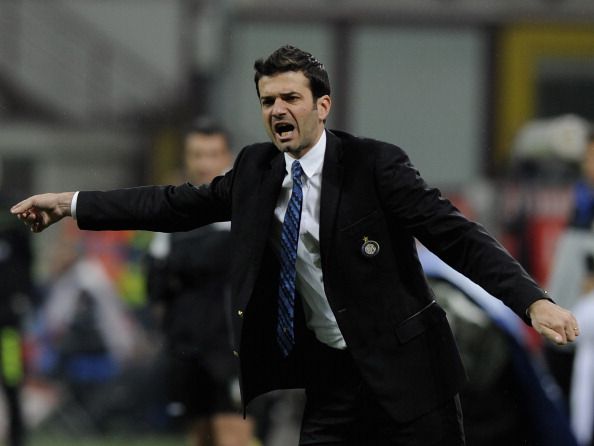
Injuries in football - Ignorance is not bliss

Andrea Stramaccioni lost almost his entire team to injuries last season.
Former Internazionale manager Andrea Stramaccioni will tell you the value of having a fit squad. In the 2012-2013 season, the amount of his players contracting injuries was so vast, and those players so vital, he could have almost smiled. In no particular order, poor Stramaccioni lost Diego Milito, Rodrigo Palacio, Antonio Cassano, Esteban Cambiasso, Yuto Nagatomo, Dejan Stankovi?, Walter Gargano, Fredy Guarín, Walter Samuel, Gaby Mudingayi, Joel Obi, Ibrahima Mbaye, Luca Castellazzi, Javier Zanetti, Cristian Chivu, Jonathan and Matías Silvestre to injuries during the tail end of the 2012/2013 Serie ‘A’ campaign – and most were serious. His team were 2nd in the league on the 22nd of December 2012, but only finished 9th after their 38th game on 19th of May, 2013.
This freak, albeit not necessarily unavoidable depletion of the young manager’s match day squad was certain to reduce Inter Milan’s competitiveness, yet it was only Stramaccioni who paid the price. Far from being consoled, Stramaccioni was fired.
This less-than-unique case study begs two questions though – can football players actually stay fit? If not, then why? Johan Cruyff states that in his day, “we never used to do a warm-up. We knew nothing about stretching and we ate whatever was on the table, but we were hardly ever injured.” Why has this changed? Professional football players put their bodies through a lot more trauma in modern football, and this is far from Stramaccioni’s fault. Injuries, as Stan Conte, head of Medical Services at the US baseball team the Los Angeles Dodgers says, are, “sort of like the weather – everybody talks about it, but nobody seems to do much about it.”
It’s difficult to place exactly which aspect of player well being football is worse at treating, but the case of injury recuperation requires immediate attention. When Thierry Henry was knocked semiconscious during the World Cup final in 2006, he had a few blasts of some sniffing salts, a pat on the behind and he was back on the pitch. The Frenchman almost certainly suffered a mild concussion for which we will never know if he was granted sufficient time to recover. It was undoubtedly a bad idea to send him back onto the field. Lionel Messi’s cameo against Paris Saint-Germain in the second leg of the 2012/2013 Champions League quarter-finals is another high profile illustration. Football is littered with these examples. Players are simply not given enough time to recover in the sport.
In the discipline of mixed martial arts (or UFC) in America, a sport where participants literally repeatedly punch and kick each other as hard as they can for the duration of a bout, utilising grapples, holds and heavy impact blows, any concussion – ANY concussion – leads to an immediate 3 month ban and they then have to be cleared by a doctor to come back. As Dana White, President of UFC, proudly reveals “In the 20-year history of the UFC, it will be 20-years in November [2013], there has never been a death or a serious injury. Never been a death or serious injury in 20 years because we go above and beyond when it comes to the safety of these guys. When you know you have two healthy athletes getting ready to compete, they get the proper medical attention before and after, it’s the safest sport in the world, fact.”
Football just doesn’t come close to this. The industry now is bulging with individuals who do not have sufficient rest after injury and often play in spite of it, with painkilling injections, bandages, face masks, and fluorescent Kinesio tape. Football journalist Gabriel Marcotti adds to the argument , ‘if a postman twists his ankle, he’ll probably be on crutches for several weeks. If Rio Ferdinand does it, he’ll be back in training after a few days and back on the pitch a week later”. If any strides are going to be made to reduce injuries to players, longer recovery time after an injury needs to be given.
At the moment, there are three main obstacles as to why football simply doesn’t give its players time to recover, that need to be overcome.